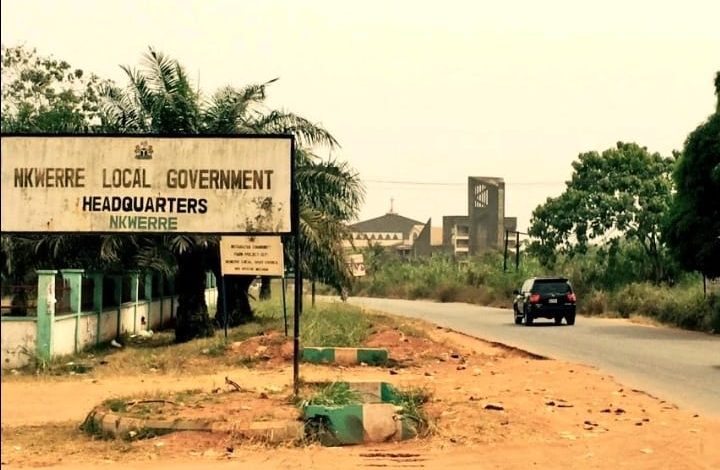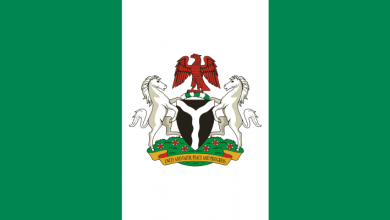
By Tony Okafor
As I embarked on the winding journey to Umuagu Onusa (also known as Onicha) Nkwerre, my mother’s ancestral hometown in Imo State, on August 9, 2024, a mix of emotions swirled within me.
I was bound for the rustic town to pay my respects to my late uncle, Chief Chukwuemeka Aloysius Ihekwoaba, a retired Biafran soldier and businessman who had passed away at the age of 77.
This trip marked my third visit since leaving Nkwerre’s embrace in 1984, after completing my teacher training at TTC, Azaraegbelu in Owerri. My journey began in Agulu, a picturesque town in Anaocha Local Government Area of Anambra State, where I traveled with my mother, Mabel, who, despite her 80 years and battling glaucoma, still exuded an aura of authority and wisdom.
We were joined by relatives from the Agulu and Obosi families, including my first cousins, Nnamdi and Okechukwu Ikeji, who are the sons of my mother’s late younger sister married to Emmanuel Ikeji of Umuota Obosi.
Additionally, my younger sister, Amaechi Anigbo (née Okafor), was part of the entourage, along with several others.
Together, we set off on the scenic route, passing through rolling hills and verdant forests, the vibrant greenery a testament to the region’s natural beauty.
Upon arriving in Nkwerre, we were enveloped in warmth and hospitality by our maternal relatives, who welcomed us with open arms and beaming smiles. The town’s rustic charm was palpable, with its winding roads and traditional architecture.
As my mother stepped out of the vehicle at Umuagu, she was greeted with a warm and enthusiastic reception. Both men and women swarmed around her, showering her with affection and respect, reminiscent of a military general receiving a ceremonial welcome.
I couldn’t help but notice the subtle changes that had crept in since my last visit. The town had transformed infrastructurally, with new buildings and roads sprouting up, but the faces I encountered told a different story – worn, weary, and worried.
The community’s rift over autonomous community issues was unmistakable, with many looking to me for mediation, as if I were a divine messenger, sent to bring peace and harmony to their troubled midst.
At Ime Obi, our grandfather’s sacred palace, we presented our condolence gifts, which included drinks, cash, and a cloth wrapper. However, our hosts accepted the wrapper with some hesitation, as it was not the traditional “Akwa George” wrapper that is deeply revered by the Nkwerre people.
I discovered that this tradition has its roots in the precolonial era, when a British colonial administrator named George wore a distinctive wrapper during a ceremonial event, which would later become known as “Akwa George” – George’s cloth. This moment left an enduring legacy, indelibly marking the town’s cultural heritage.
To rectify the situation, I added N5,000 to the cloth (wrapper) to “baptize” it as Akwa George, and our maternal uncles accepted it with gratitude, hailing me as an “Anambra politician.”
We shared conviviality, and I exchanged phone numbers with old friends and relations, rekindling memories of a bygone era.
However, the journey was marred by the deplorable state of roads in Imo State, particularly from Akakwo to Amanator up to Dikenafai in Ideato South Local Government Area. The roads were so bad that youths had taken to repairing them and charging commuters for passage.
As I reflected on my journey, I realized that Nkwerre may have changed, but its people’s warmth, hospitality, and resilience remain unchanged. I urged the community not to allow political issues to divide them, to remember the importance of unity and togetherness.
I reminded them that their cherished traditions and cultural heritage were worth preserving, for they are the threads that weave the tapestry of their identity.
My journey to Nkwerre was a poignant reminder of the power of tradition, community, and resilience. As I returned to Agulu, I carried with me memories of a town that had shaped my childhood and a people who had welcomed me back with open arms.
I remain hopeful that the people of Nkwerre will heed my advice and work towards a brighter, more united future, where their traditions and cultural heritage continue to thrive.
For in the end, it is our shared humanity and collective identity that truly matter.
Adieu De Chukwuemeka




